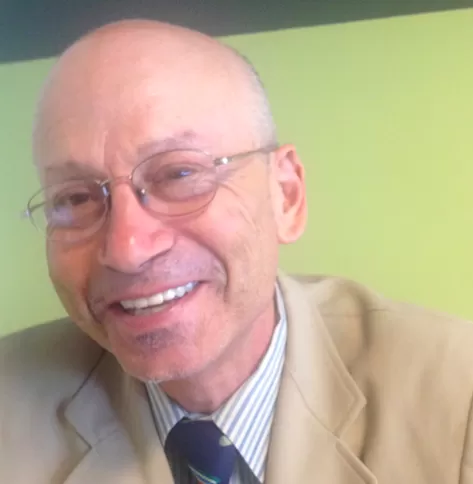Irvin Dawid discovered Planetizen when a classmate in an urban planning lab at San Jose State University shared it with him in 2003. When he left San Jose State that year, he took with him an interest in Planetizen, if not the master's degree in urban & regional planning.
As a long-time environmental activist, he formed the Sustainable Land Use committee for his local Sierra Club chapter and served six years on the Bay Area Air Quality Management District’s Advisory Council from 2002-2008. He maintains his interest in air quality by representing Sierra Club California on the Clean Air Dialogue, a working group of the Calif. Environmental Dialog representing business, regulatory and public health/environmental interests.
Major interests include transportation funding, e.g., gas taxes, vehicle miles traveled (VMT) fees, road tolls and energy subsidies that lead to unlevel playing fields for more sustainable choices.
He hails from Queens (Bayside) and Long Island (Great Neck); received an AAS in Fisheries & Wildlife Technology from SUNY Cobleskill and a B.S. from what is now Excelsior College.
After residing for three years on California’s North Coast, he’s lived on the San Francisco Peninsula since 1983, including 24 years in Palo Alto. Home is now near downtown Burlingame, a short bike-ride to the Caltrain station.
He’s been car-free since driving his 1972 Dodge Tradesman maxi-van, his means to exit Long Island in 1979, to the junkyard in 1988.
Major forms of transportation: A 1991 'citybike' and monthly Caltrain pass, zone 2-2. "It's no LIRR, but it may be the most bike friendly train in America."
Irvin can be reached at [email protected]
Oil Independence or Independence from Oil?
With booming shale oil production in North Dakota and Texas and possibly Canada's vast oil sands, there is talk of energy independence as the U.S. reduces its oil imports. But why not be less dependent on oil - domestic or imported?
More Rigorous Fracking Standards Designed by Drillers and Environmentalists
A two-year negotiating process has culminated with a set of 15 voluntary standards to make for more responsible fracking to safeguard the environment in Appalachia. Some environmental groups are skeptical, and not all energy companies are on board.
Maryland Gas Tax Bill May Raise the Bar
One of the nation's most-watched and complex gas tax bills made significant progress in the House of Delegates. It retained one of its most significant parts, indexing the tax (and transit fares) to inflation, overcoming opposition by Republicans.
Strong Government Regulations Key to Kicking Oil Habit, Reducing Vehicle Emissions
What will it take to greatly reduce oil consumption and greenhouse gas emissions from passenger vehicles? Efficiency, alternative fuels, and strong governmental policies reports the National Research Council. And it will be highly unlikely.
State Gas Taxes: What a Difference a Year Makes!
Fox News ran two articles on the climate for increasing state gas taxes, almost exactly a year apart. The 2012 article is pessimistic about the ability to increase gas taxes while the March 14th one is decidedly upbeat. Why the change, what happened?

























